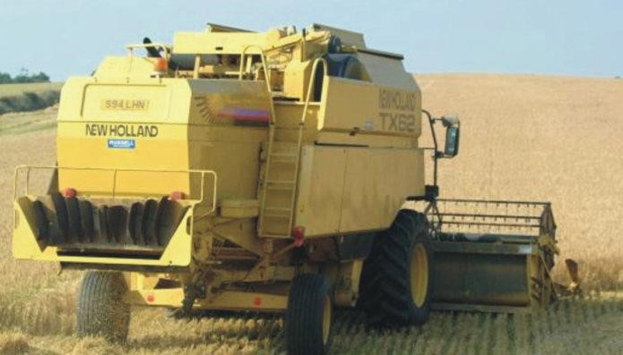Lesson Notes By Weeks and Term - Primary 6
IMPROVING CROP YIELD
WEEK 9
SUBJECT: BASIC SCIENCE AND TECHNOLOGY
TERM: 1ST TERM
CLASS: PRIMARY 6 �
TOPIC: IMPROVING CROP YIELD
BEHAVIOURAL OBJECTIVES: AT THE END OF THE LESSON, PUPILS SHOULD BE ABLE TO:
INSTRUCTIONAL MATERIALS:�
A chart showing the instruments for planting crops.
REFERENCE MATERIALS
Scheme of work
All relevant materials �� �
9-Years Basic Education Curriculum
Online information
BUILDING BACKGROUND/CONNECTION TO PRIOR KNOWLEDGE:
Pupils are familiar with the topic in their previous classes.
�
CONTENT OF THE LESSON
IMPROVING CROP YIELD
Farmers like to obtain a higher yield from their farms. There are many ways in which this can be done.
To increase crop yield, we need to conserve the soil by avoiding erosion. We also need to increase soil fertility through the application of suitable fertilizers. Planting of certain crops also helps to improve the condition of the soil.
The types of crops grown in the farm include, maize, soya beans, grains, yams, cassava, vegetables, pepper, okra, cocoyam, carrot, lettuce, melon, etc.�
Fertility and Crop Yield
Crop yield is the amount of crops per unit area of a particular farmland. One of the factors that affect crop yield is the level of fertility of a particular soil the farmer intends to use for farming. Naturally the soil is enriched with the amounts of nutrients from the decomposed leaves of plants and dead animals.
However, in the process of preparing the land for plant growing, there is the possibility for loss of soil fertility. In such a situation, there is the need for an organized (artificial) fertility in order to ensure and sustain the nutrient of the land for maximum crop yield.
Fertilizers are organized methods of adding substance to the soil to make it more enriched in fertility for the purpose of helping plants to grow well and for maximum crops yield. There are two classes of fertilizers. They are organic manure and chemical fertilizers.
Organic Manure:
This is also called natural manure. There are three types of natural manure, namely: animal (livestock) manure, green (vegetable) manure and compost manure.
Artificial Fertilizer:
This is obtained from inorganic a substance which is applied to the soil to improve its fertility.
Artificial fertilizer is also known as chemical fertilizer. Examples are the NPK fertilizer, Super Phosphate, Urea and lime.
Improving crop yield is important because it would help us satisfy our needs. When crop production is improved, there will be enough food for us to eat and more to sell for money. We therefore need to increase soil fertility through the application of suitable manure or fertilizer.
�
�Compost manure contains, in the right proportions, all the food substances plants need to grow well.
Growing Crops with Chemical Fertilizers
Chemical fertilizer enriches the soil and helps crops to grow properly and yield harvest. Chemical fertilizer contains all food materials the soil needs as a substitute for natural nutrients which might not be of appreciable quantity and quality on the farmland. The appropriate quantity of chemical fertilizers must be followed by the farmer on application.
Crops without natural manure or chemical fertilizers:
(i) May grow very unhealthy.
(ij) May grow abnormally.
Assessment & Evaluation:
�
�(WRAP-UP CONCLUSION) ��������������� �
Teacher goes over the topic once again to enhance better understanding
� Lesson Notes All Rights Reserved 2023